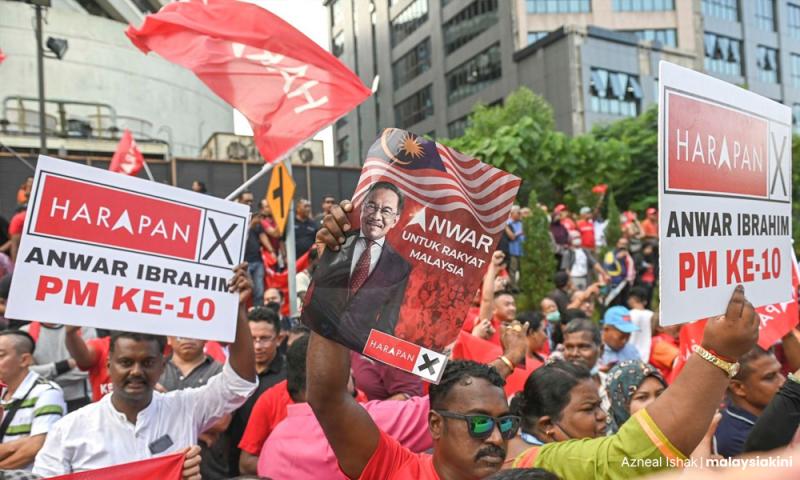
Despite mixed feelings, many still rooting for Anwar's govt
When Anwar Ibrahim finally assumed the mantle of the prime minister of Malaysia, the position came with the weight of expectations.
As we mark 100 days of his government, activists and representatives of social causes took the time to reflect on the start his administration has made.
It should be noted that the wild expectations which followed the toppling of the BN administration in 2018 are tempered now.
The public understands that Anwar's government is not a fully reformist one as he has to work with former rivals in BN. Nor does his coalition enjoy a strong presence in the Dewan Negara which is required to push through new laws.
Nonetheless, many are hoping that Anwar will follow through on campaign promises and listen to the wishes of the people.
Rights of the consumer
“100 days is too short a time to make any meaningful assessment of the performance of the prime minister. Nevertheless, my view is that Anwar has been giving the right signals and is setting the right direction,” said Consumers Association of Penang (CAP) honourary secretary Meena Raman.
“For a start, removing the wearing of the tie (during official meetings) signals less formality and more simplicity. Wearing traditional attire instead of western garb projects confidence in our heritage rather than adopting colonial traditions.
“The prime minister in tabling the recent budget stressed important pillars of inclusive economic growth and institutional reforms. Ensuring social justice and reducing inequalities are refreshing thrusts going forward.
“A strong orientation towards addressing the plight of especially the poor and the B40 and having more redistributive measures with higher taxes for the rich and luxury products are steps in the right direction,” she added.
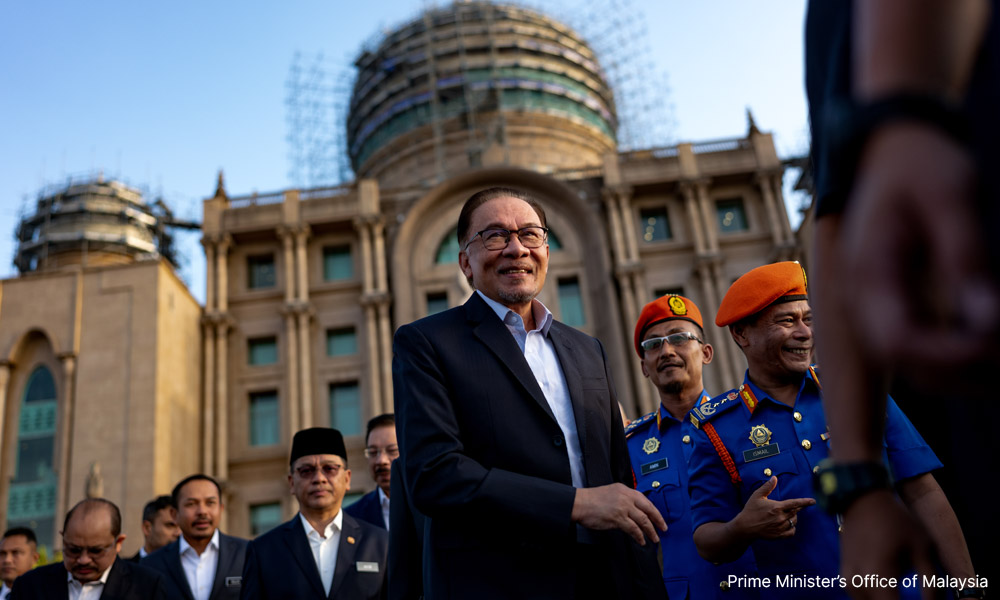
Prime Minister Anwar Ibrahim
Meena said coming down hard on corruption and malpractices is indeed what is needed to redress the ills of this nation.
“Institutional reforms will take time, and we hope the PM will be able to implement the right measures,” she said.
Reform public education
Tiada.Guru spokesperson/campaign representative Fiqah Roslan told Malaysiakini her group understands that true and meaningful reform takes time, especially institutional reform.
“We acknowledge and empathise with that. We also acknowledge that it is only coming up to the first 100 days of Anwar's government, so realistically speaking, it wouldn’t be prudent to expect the moon and the stars simply because there has been a change in leadership.
“However, as the nation’s reformist icon, there has unfortunately been little commitment to actual reforms, especially in education.
“Education Minister Fadhlina Sidek herself said the Education Ministry will continue with current policies and that reform is not their priority. She has said the ministry will focus on dilapidated schools, lessening teacher workload, and things of the sort.”
Fiqah explained that while these are issues that need to be solved, Tiada.Guru also believes getting the ball rolling on reforming public education would curb such issues from recurring in the future.
Tiada.Guru is an NGO that represents the voices of whistleblowers including students, parents, and teachers themselves.
“Core to all of this is enhancing whistleblower protection. Civil servants (in this case, teachers) are the ones who are most exposed to leakages that occur within public education and the problems that arise from it.
Meena said coming down hard on corruption and malpractices is indeed what is needed to redress the ills of this nation.
“Institutional reforms will take time, and we hope the PM will be able to implement the right measures,” she said.
Reform public education
Tiada.Guru spokesperson/campaign representative Fiqah Roslan told Malaysiakini her group understands that true and meaningful reform takes time, especially institutional reform.
“We acknowledge and empathise with that. We also acknowledge that it is only coming up to the first 100 days of Anwar's government, so realistically speaking, it wouldn’t be prudent to expect the moon and the stars simply because there has been a change in leadership.
“However, as the nation’s reformist icon, there has unfortunately been little commitment to actual reforms, especially in education.
“Education Minister Fadhlina Sidek herself said the Education Ministry will continue with current policies and that reform is not their priority. She has said the ministry will focus on dilapidated schools, lessening teacher workload, and things of the sort.”
Fiqah explained that while these are issues that need to be solved, Tiada.Guru also believes getting the ball rolling on reforming public education would curb such issues from recurring in the future.
Tiada.Guru is an NGO that represents the voices of whistleblowers including students, parents, and teachers themselves.
“Core to all of this is enhancing whistleblower protection. Civil servants (in this case, teachers) are the ones who are most exposed to leakages that occur within public education and the problems that arise from it.
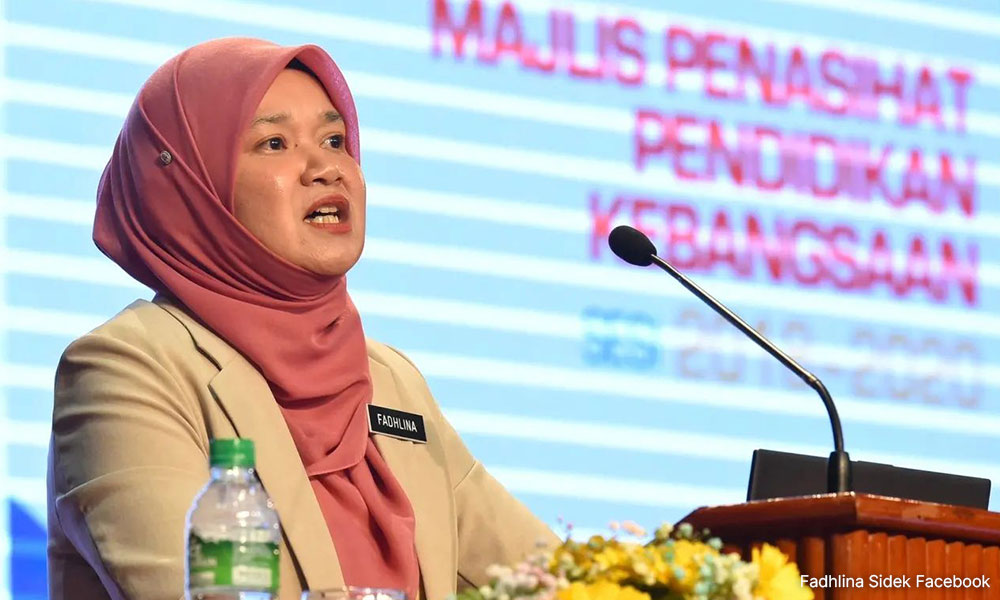
Education Minister Fadhlina Sidek
“These civil servants should be empowered to report such leakages without fear of retribution. Strengthening whistleblower protection would greatly improve the performance and delivery of service within public education.
“Having oversight and more scrutiny into how funds are distributed is also crucial. If the minister is talking about building bridges to enhance access to schools for rural students, repairing works for dilapidated schools and such, there should be an independent audit of the Education Ministry’s finances.
“An audit report should be made publicly available like that of the Auditor General so the public can see where our tax money goes. This enhances accountability at all levels and we hope it would also increase the transparency of procurement processes for tenders related to public schools,” said Fiqah.
She said while there are many immediate issues that need to be addressed, the reform agenda should not take a back seat. It should be the catalyst that drives a government led by the “Father of Reformation”.
Environment needs attention
Environmentalist Lim Teck Wyn, an honorary associate professor of geography, said while he was pleased with the increased allocation of RM150 million for forest management, announced in Budget 2023 by Anwar, he was surprised that it was not higher.
“The Pakatan Harapan manifesto promised RM1 billion for this. I don’t see enough incentives for forest protection. RM150 million for the whole nation is not enough.
“For example, it has been claimed that just saving a small portion of one forest in Bukit Cherakah, Selangor, would require RM1 billion. And Kedah alone has requested RM100 million in compensation for not logging Ulu Muda. So RM150 million for the whole nation is not enough. The direction is good, but it does not go far enough,” said Teck Wyn.
“I am optimistic about Anwar and I do like a lot about Natural Resources, Environment, and Climate Change Minister Nik Nazmi Nik Ahmad. He has been open and met NGO reps twice already. He has committed to greater transparency,” he added.
Meena, in her capacity as president of Sahabat Alam Malaysia, noted:
“On the environment front, the initial steps are welcome as announced in the budget. Increasing the Ecological Fiscal Transfer from RM70 million to RM150 million is a good signal for the much-needed protection and conservation of our forests.
“These civil servants should be empowered to report such leakages without fear of retribution. Strengthening whistleblower protection would greatly improve the performance and delivery of service within public education.
“Having oversight and more scrutiny into how funds are distributed is also crucial. If the minister is talking about building bridges to enhance access to schools for rural students, repairing works for dilapidated schools and such, there should be an independent audit of the Education Ministry’s finances.
“An audit report should be made publicly available like that of the Auditor General so the public can see where our tax money goes. This enhances accountability at all levels and we hope it would also increase the transparency of procurement processes for tenders related to public schools,” said Fiqah.
She said while there are many immediate issues that need to be addressed, the reform agenda should not take a back seat. It should be the catalyst that drives a government led by the “Father of Reformation”.
Environment needs attention
Environmentalist Lim Teck Wyn, an honorary associate professor of geography, said while he was pleased with the increased allocation of RM150 million for forest management, announced in Budget 2023 by Anwar, he was surprised that it was not higher.
“The Pakatan Harapan manifesto promised RM1 billion for this. I don’t see enough incentives for forest protection. RM150 million for the whole nation is not enough.
“For example, it has been claimed that just saving a small portion of one forest in Bukit Cherakah, Selangor, would require RM1 billion. And Kedah alone has requested RM100 million in compensation for not logging Ulu Muda. So RM150 million for the whole nation is not enough. The direction is good, but it does not go far enough,” said Teck Wyn.
“I am optimistic about Anwar and I do like a lot about Natural Resources, Environment, and Climate Change Minister Nik Nazmi Nik Ahmad. He has been open and met NGO reps twice already. He has committed to greater transparency,” he added.
Meena, in her capacity as president of Sahabat Alam Malaysia, noted:
“On the environment front, the initial steps are welcome as announced in the budget. Increasing the Ecological Fiscal Transfer from RM70 million to RM150 million is a good signal for the much-needed protection and conservation of our forests.

“The amount is still small compared to what is needed but is certainly a step in the right direction. We hope more resources will be forthcoming in the coming years.
“Addressing our vulnerability to climate disasters is one area we would like to see more improvement on. Having pro-poor policies and pro-environment measures are mutually reinforcing.
“Protecting our soils, fishery resources, and forests will ensure that the poor, who are dependent on these resources for their livelihoods and sustainability, will be able to have a decent life,” she said.
She also hoped Anwar can tap into the rich experiences of civil society groups who are engaging at the grassroots level in agroforestry and agroecology.
Independent police commission
M Ramachelvam, co-chairperson of the Bar Council’s Migrants, Refugees, and Immigration Affairs Committee, raised the point that the Anwar administration is committed to enforcing the Independent Police Conduct Commission (IPCC) Act 2020 this June.
“Unfortunately, the IPCC 2020 is a watered-down version of the Independent Police Complaints and Misconduct Commission (IPCMC) that was recommended by the Royal Commission to Enhance the Operation and the Management of the Royal Malaysian Police.
“The IPCC Act 2020 has removed some of the key provisions provided in the IPCMC Bill 2019 that was tabled in Parliament and subsequently withdrawn. The IPCC Act 2020 has serious deficiencies that need to be addressed to ensure that it brings about police accountability.
“The IPCC Act 2020 should be amended to include disciplinary, search, and investigative powers to be vested with the IPCC. Provisions for the institutional independence and impartiality of the commissioner are also key,” explained Ramachelvam.
Tackling hospital overcrowding
Third World Network senior researcher and People’s Health Forum co-convener Dr Lim Chee Han said his views on Anwar’s performance are based on Budget 2023 and Health Minister Dr Zaliha Mustafa’s statements.
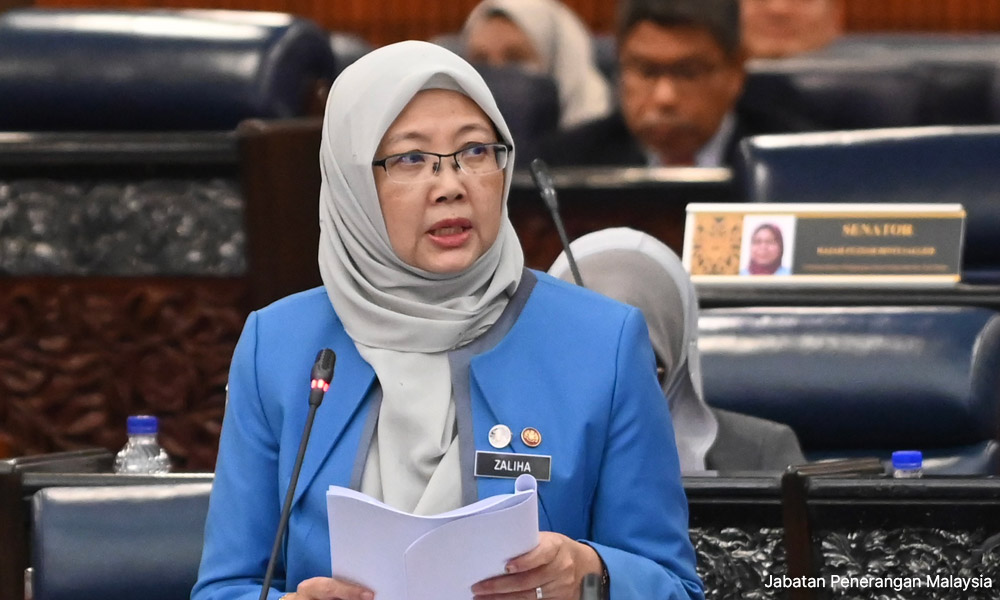
Health Minister Dr Zaliha Mustafa
“RM2.3 billion was allocated to outsourcing. They term it a public-private partnership. There is a lot of money there for the government to integrate resources,” said Chee Han, who is curious as to how the money will be spent, adding that people will be happy when the overcrowding in hospitals is solved.
“I think she is concerned about overcrowding in healthcare facilities and is trying to find ways to overcome it,” he said, adding that when a minister shows her political view on an issue, things can be done.
Her concern about health workers’ working hours and the recent town hall session with contract doctors who were about to go on strike, in which they were allowed to voice out their issues, are also things that work in the minister’s favour, he said.
Chee Han notes that the amount allocated in Budget 2023 is not much more - about RM187 million more - than what was proposed by the previous government.
“There’s also some allocation for repairs to hospitals and government clinics. The announcement of new hospitals has been something in the pipeline for a while now,” he said
He said the fact that Zaliha is responsive about things that go on in the health sector such as a patient being denied treatment based on the way they were dressed says a lot about the minister.
He is eagerly awaiting the Health White Paper, started by Zaliha’s predecessor Khairy Jamaluddin, which she promised to table in Parliament this June. Another white paper she said she will be tabling is on the procurement of vaccines by the previous government.
Chee Han said both he and Zaliha worked together in the Health Ministry. As a politician, she has the advantage because she knows what is going on first-hand.
“She has not made any major mistakes. She is still learning on the job. There are a lot of promises made in the Pakatan Harapan manifesto that she has to look into,” he said.
Important amendments to Constitution
Sevan Doraisamy, Suara Rakyat Malaysia (Suaram) executive director, said on the human rights front, there have been some policy developments.
He cited the approval of proposed amendments to the Federal Constitution to enable Malaysian mothers to confer citizenship on their overseas-born children; the setup of the Children’s Commission as an independent statutory body to promote and protect the rights, welfare, and wellbeing of children; as well as the expected tabling of the bill related to the abolition of the mandatory death penalty this March and the Freedom of Information Act in Parliament this October.
“RM2.3 billion was allocated to outsourcing. They term it a public-private partnership. There is a lot of money there for the government to integrate resources,” said Chee Han, who is curious as to how the money will be spent, adding that people will be happy when the overcrowding in hospitals is solved.
“I think she is concerned about overcrowding in healthcare facilities and is trying to find ways to overcome it,” he said, adding that when a minister shows her political view on an issue, things can be done.
Her concern about health workers’ working hours and the recent town hall session with contract doctors who were about to go on strike, in which they were allowed to voice out their issues, are also things that work in the minister’s favour, he said.
Chee Han notes that the amount allocated in Budget 2023 is not much more - about RM187 million more - than what was proposed by the previous government.
“There’s also some allocation for repairs to hospitals and government clinics. The announcement of new hospitals has been something in the pipeline for a while now,” he said
He said the fact that Zaliha is responsive about things that go on in the health sector such as a patient being denied treatment based on the way they were dressed says a lot about the minister.
He is eagerly awaiting the Health White Paper, started by Zaliha’s predecessor Khairy Jamaluddin, which she promised to table in Parliament this June. Another white paper she said she will be tabling is on the procurement of vaccines by the previous government.
Chee Han said both he and Zaliha worked together in the Health Ministry. As a politician, she has the advantage because she knows what is going on first-hand.
“She has not made any major mistakes. She is still learning on the job. There are a lot of promises made in the Pakatan Harapan manifesto that she has to look into,” he said.
Important amendments to Constitution
Sevan Doraisamy, Suara Rakyat Malaysia (Suaram) executive director, said on the human rights front, there have been some policy developments.
He cited the approval of proposed amendments to the Federal Constitution to enable Malaysian mothers to confer citizenship on their overseas-born children; the setup of the Children’s Commission as an independent statutory body to promote and protect the rights, welfare, and wellbeing of children; as well as the expected tabling of the bill related to the abolition of the mandatory death penalty this March and the Freedom of Information Act in Parliament this October.
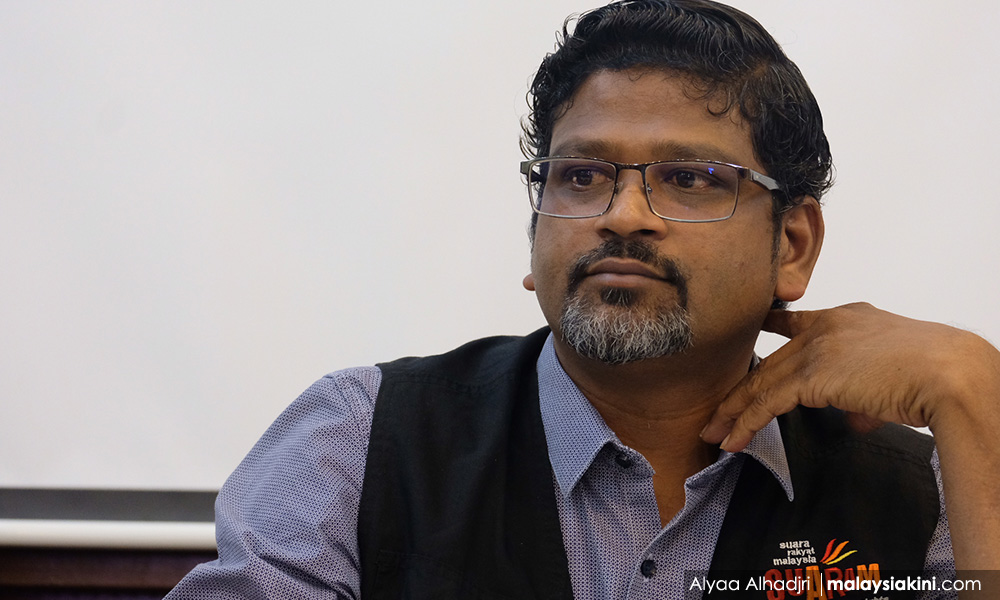
Sevan Doraisamy, Suara Rakyat Malaysia (Suaram) executive director
“In addition, efforts are carried out by the Home Ministry to address the issue of deaths in custody, including amending the 1953 Lockup Rules and developing standard operating guidelines to improve the management of detainees, as well as study the proposal of affixing a “Hospital or Custody” notice on every police car as a reminder to send ill or injured detainees to the hospital for treatment,” said Sevan.
Other proposals that the government has committed to look into that deserve recognition include potential amendments to the Communications and Multimedia Act 1998 to provide better protection to children and women against online sexual violence, as well as draft legislation to increase accessibility to treatment and rehabilitation of drug offenders.
“Whilst we acknowledge engagement efforts by the government with civil society and the expected tabling of the Freedom of Information Act, such efforts are not consistent unless they are accompanied by improvements to existing laws.
“On that note, we would like to see the government commit to the abolishment of the Sedition Act 1948 and Section 233 of the Communications & Multimedia Act 1998 which have been used on a longstanding basis to criminalise those who are critical of the government.
“Until these provisions are abolished, a moratorium can be imposed as a firm step towards the effective enjoyment of and ability to exercise the right to freedom of expression,” said Sevan.
Rights of Orang Asli
Colin Nicholas, the Center for Orang Asli Concerns coordinator said, “If you look at Anwar’s political moves so far, he is obviously trying to appease the governments in Sabah and Sarawak, especially Sarawak. But that’s mainly because he needs them to be in power, to be part of the unity government.
“Directing your attention more to Sabah and Sarawak does not mean you’re directing your attention to the people of Sabah and Sarawak, the marginalised people, the people who need it most.”
He pointed out that one of the promises made in the Pakatan Harapan manifesto was to uphold the rights of the indigenous people of Sabah, Sarawak, and Orang Asli including traditional lands and customary rights.
“So despite all this, giving out things to Sabah and Sarawak, he has not done anything for the real core items that matter to the people on the ground, the indigenous communities,” said Nicholas.
“In addition, efforts are carried out by the Home Ministry to address the issue of deaths in custody, including amending the 1953 Lockup Rules and developing standard operating guidelines to improve the management of detainees, as well as study the proposal of affixing a “Hospital or Custody” notice on every police car as a reminder to send ill or injured detainees to the hospital for treatment,” said Sevan.
Other proposals that the government has committed to look into that deserve recognition include potential amendments to the Communications and Multimedia Act 1998 to provide better protection to children and women against online sexual violence, as well as draft legislation to increase accessibility to treatment and rehabilitation of drug offenders.
“Whilst we acknowledge engagement efforts by the government with civil society and the expected tabling of the Freedom of Information Act, such efforts are not consistent unless they are accompanied by improvements to existing laws.
“On that note, we would like to see the government commit to the abolishment of the Sedition Act 1948 and Section 233 of the Communications & Multimedia Act 1998 which have been used on a longstanding basis to criminalise those who are critical of the government.
“Until these provisions are abolished, a moratorium can be imposed as a firm step towards the effective enjoyment of and ability to exercise the right to freedom of expression,” said Sevan.
Rights of Orang Asli
Colin Nicholas, the Center for Orang Asli Concerns coordinator said, “If you look at Anwar’s political moves so far, he is obviously trying to appease the governments in Sabah and Sarawak, especially Sarawak. But that’s mainly because he needs them to be in power, to be part of the unity government.
“Directing your attention more to Sabah and Sarawak does not mean you’re directing your attention to the people of Sabah and Sarawak, the marginalised people, the people who need it most.”
He pointed out that one of the promises made in the Pakatan Harapan manifesto was to uphold the rights of the indigenous people of Sabah, Sarawak, and Orang Asli including traditional lands and customary rights.
“So despite all this, giving out things to Sabah and Sarawak, he has not done anything for the real core items that matter to the people on the ground, the indigenous communities,” said Nicholas.
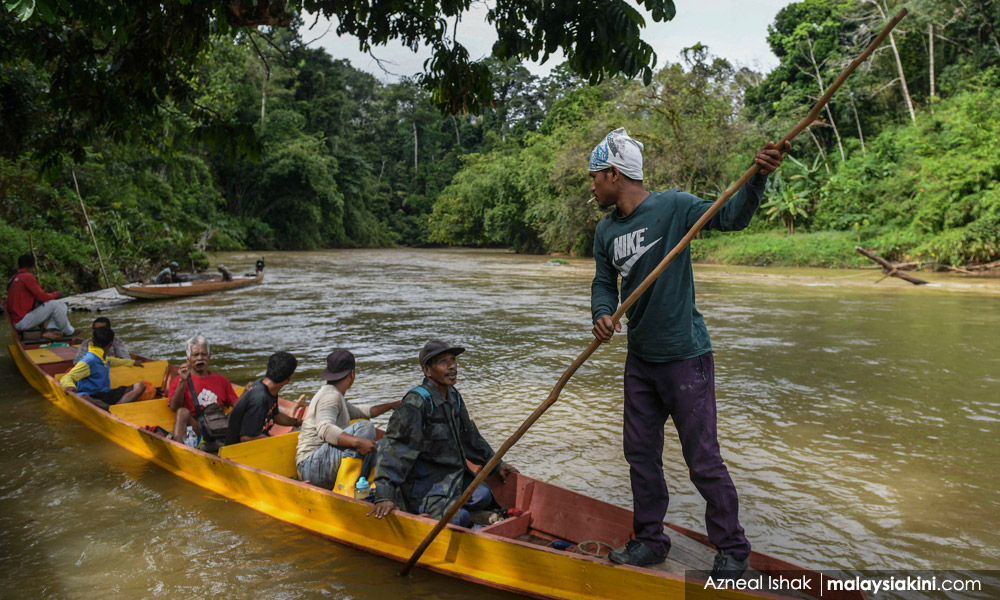
He said there is talk of an amendment to the Orang Asli Act by Deputy Prime Minister Ahmad Zahid Hamidi.
“I fear that it’s going to make it worse for Orang Asli because the deputy prime minister has said that he’s going to be revamping the act, reforming the act and so on, and more importantly, to put it in line with the National Land Code.
“The National Land Code amendments in 2007 do not give Orang Asli rights, they take away rights, especially to their traditional territories.
“We don’t expect him (Anwar) to do much in 100 days, nobody expects that. But his focus seems to be on the macro level, on getting states and indigenous states, Sabah and Sarawak, to come on board, to be on his side, but in reality, for them means for the government of the day, not for the people of those areas.“
Nicholas recalled that before becoming prime minister it was easy to meet Anwar and work closely with him on environmental and Orang Asli issues.
“He knows the problems, but he has many things on his plate. I don’t expect him to take the lead,” said Nicolas who hopes that Anwar will direct those in charge to help the Orang Asli based on what he has discussed with their representatives in the past.
Do more for migrant workers, refugees
When it comes to the plight of refugees, Ramachelvam is a little disappointed.
“There has been no significant reform by the Anwar administration with respect to refugees and asylum seekers in Malaysia.
“There is no policy to ratify the 1951 convention relating to the status of refugees or its 1967 protocol. Refugees and asylum seekers continue to be detained in immigration detention centres (IDCs) since Sept 2019; as the United Nations High Commissioner for Refugees (UNHCR) has been denied access to the IDCs since Sept 2019,” he said.
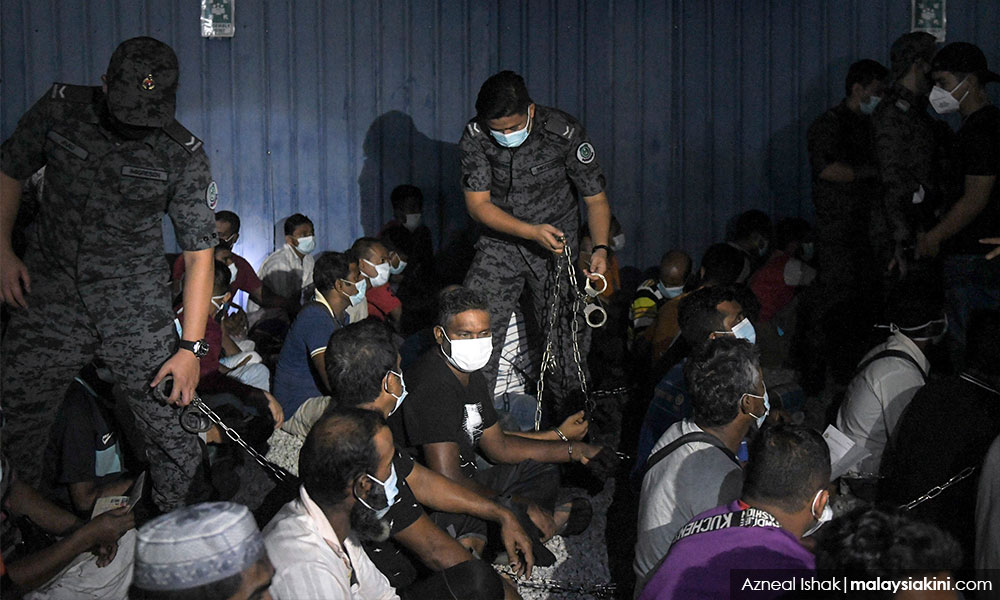
Ramachelvam said there is no policy framework to deal with the issue of refugees and asylum seekers in Malaysia.
He suggests the Anwar administration immediately put in place a policy that provides refugees and asylum seekers the right to work, the right to education for their children, affordable healthcare, recognition of documents pertaining to their status, and assurance that no refugee or asylum seekers including children are held in IDCs.
He also wants the UNHCR to be allowed immediate access to IDCs to carry out refugee status determination.
Support arts scene
Arts, Live Festivals, and Events Association (Alife) chairperson P Rajagopal said the most important thing Anwar has done is bring people hope and inspiration to restore the spirit of unity, resilience, and international respect.
“My personal hope is to get more support for the music and live events industry.
“This means industry-driven approval guidelines to assist the growth and creativity of the industry, as well as a competitive entertainment tax structure, so Malaysia becomes a preferred destination for touring acts, as well as provide grants or land to the private sector to build entertainment-purposed venues.”
Book publisher Amir Muhammad was more languid. He said: “It seems to be business as usual. At the KL Alternative Bookfest, we have daily visits from Home Ministry looking for “undesirable content”. Plus I had another book banned!”
Amir was referring to the book ‘Aku’ which was banned by the Home Ministry recently along with two other books ‘The Tale of Steven’ and, ‘Jacob’s Room To Choose’, as they were deemed to be harmful to Malaysian morals.
On another note, Amir said, “But this sure beats having (PAS president) Abdul Hadi Awang in an influential position.”

Book publisher Amir Muhammad
Penangites have spoken
Koris Atan, the president of the Penang Consumer Protection Association, vice president of the Federation of Malaysian Consumer Associations (Fomca), and president of the Malaysian Alliance of Tobacco-Free Organisations said he believes Anwar is a good prime minister.
However, he is disappointed there are no cabinet ministers from Penang.
“Anwar is more innovative, more forward-thinking, and he can do better. He listens to the people,” said Koris.
He admits to being a DAP supporter, not a member, and Penang is the one state that is controlled by DAP since 2008. He said many DAP supporters in Penang would like to see a DAP member from Penang given a minister post.
For now, there is only one deputy minister in the Prime Minister’s Department (Law and Institutional Reform) Ramkarpal Singh who hails from Penang.
Going for gold
Veteran sports writer Graig Martyn Nunis was disappointed by the sports allocation at the recent Budget 2023.
“The sports budget lacks clarity and specificity. RM324 million but for such a wide range of activities. No breakdown of who gets what and how. After three months, not much to show. The government seems stuck in second gear.
“Having said that, I want him to succeed as that can only be good for Malaysia. Just need to see more action,” said Graig.
Penangites have spoken
Koris Atan, the president of the Penang Consumer Protection Association, vice president of the Federation of Malaysian Consumer Associations (Fomca), and president of the Malaysian Alliance of Tobacco-Free Organisations said he believes Anwar is a good prime minister.
However, he is disappointed there are no cabinet ministers from Penang.
“Anwar is more innovative, more forward-thinking, and he can do better. He listens to the people,” said Koris.
He admits to being a DAP supporter, not a member, and Penang is the one state that is controlled by DAP since 2008. He said many DAP supporters in Penang would like to see a DAP member from Penang given a minister post.
For now, there is only one deputy minister in the Prime Minister’s Department (Law and Institutional Reform) Ramkarpal Singh who hails from Penang.
Going for gold
Veteran sports writer Graig Martyn Nunis was disappointed by the sports allocation at the recent Budget 2023.
“The sports budget lacks clarity and specificity. RM324 million but for such a wide range of activities. No breakdown of who gets what and how. After three months, not much to show. The government seems stuck in second gear.
“Having said that, I want him to succeed as that can only be good for Malaysia. Just need to see more action,” said Graig.
No comments:
Post a Comment